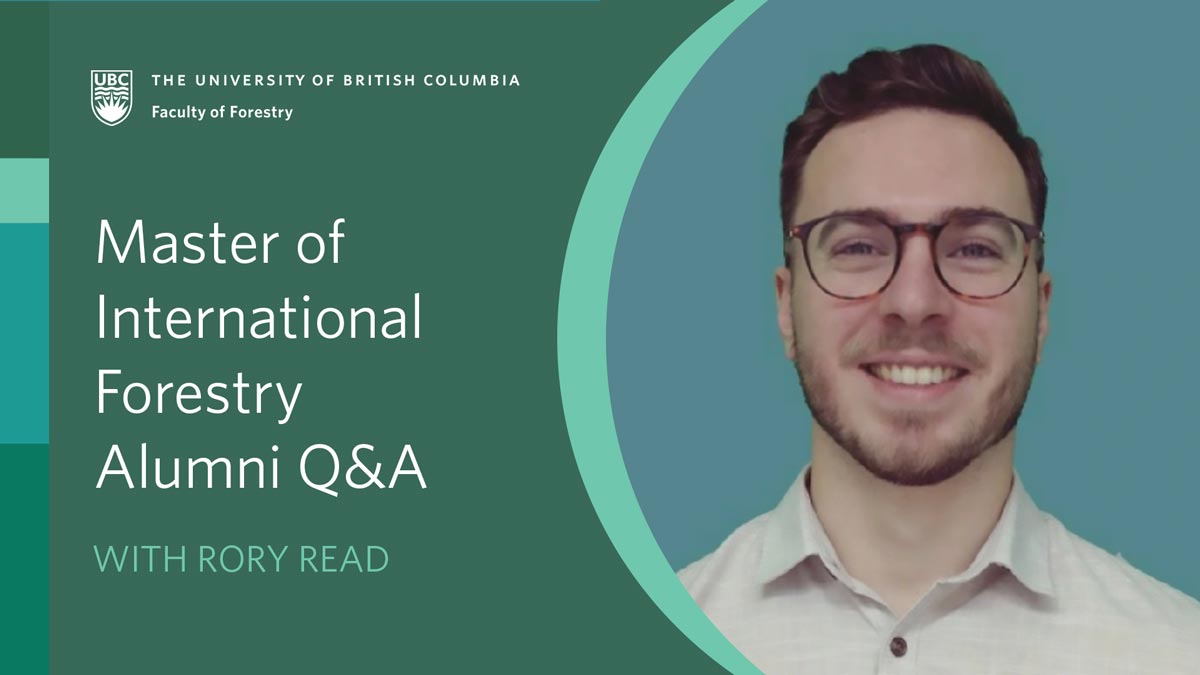Discover your place among tomorrow’s international forestry leaders.
The University of British Columbia’s Master of International Forestry (MIF) is an intensive, 12-month program based on a mix of experiential learning and coursework that prepares students to explore, negotiate, and implement solutions to the complex challenges facing the world’s forests, and the people that depend upon them.
Why Choose the MIF Program?
Graduates of the MIF program are equipped for careers in a rapidly expanding field addressing global challenges like climate change, biodiversity, and sustainable development. With forests at the heart of international concerns, the program provides students with the skills, knowledge, and networks needed to tackle complex issues through a transdisciplinary and globally coordinated approach.
UBC Forestry: An International Faculty
UBC Forestry faculty and MIF instructors bring decades of global experience, from tropical rainforests to boreal regions, into the classroom. Their expertise, passion, and international networks enrich learning through research-driven teaching and guest lectures. The program also connects students to the International Forestry Students Association, fostering global engagement and travel opportunities.
International Field Course
The MIF program includes an international field course (the costs of which are covered by tuition). In February 2025, the MIF class will visit Costa Rica and CATIE (Tropical Agricultural Research and Higher Education Center) to witness international forestry and conservation in action. Additional field trips are held locally throughout the year.
Expand your professional network
MIF students are introduced to a wide variety of organizations and individuals that are involved in the field, including MIF alumni. Support is provided in establishing a professional network and seeking employment.
Study at a top 20 University
UBC is a world leader in forestry, consistently ranking among the top 20 global universities. The program offers connections to leading forest institutions and a network of internationally experienced forestry and natural resource management professionals.
What Will you Learn?
The program offers a mix of experiential learning and coursework over 8 months of full-time study, followed by an internship placement with one of our international partners, or a directed study supervised by a faculty member.
Courses covering a wide range of topics, including:
- Integrated natural resources planning and management: taking a “landscapes and livelihoods” approach
- International environmental policy and governance: focusing on international best practices and solutions to complex challenges
- International diplomacy, negotiations and institutions related to forests and the environment
- Social, community, and Indigenous forestry: exploring concepts related to Indigenous rights, tenure, and how they relate to contemporary forest issues
- Natural resource economics and environmental finance: basic principles such as payment for ecosystem services, and skills, such as how to write effective financing proposals
- Forest business enterprise: learn essential skills required to run an international business or social venture
- Leadership and management workshops throughout the year will provide practical skills, such as project management








